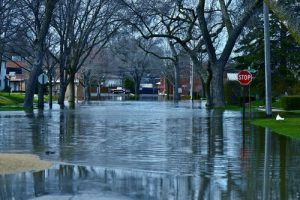
U.S. Sen. Bill Cassidy (R-LA) recently led a bipartisan congressional call for Senate leaders to extend the National Flood Insurance Program (NFIP), which is slated to expire in September, and helps reduce the financial impact of flooding on private and public structures.
Established under the Federal Emergency Management Agency (FEMA), NFIP ensures flood insurance coverage for communities in areas prone to flooding, and it aims to lessen the risk of flooding through standardized floodplain management standards.
“The National Flood Insurance Program gives essential coverage for many.” Cassidy said. “I look forward to working to extend this critical program, ensuring that Louisiana families have what they need to recover if ever flooded.”
Since NFIP was established in 1978, residents of Florida, Louisiana and Mississippi have paid $26.5 billion into the program, accounting for more than 46 percent of total program receipts over that time, states a letter to Senate leaders coauthored by Cassidy.
“Given the program’s importance to our states, we urge Senate leadership to ensure that legislation reauthorizing the NFIP avoids any lapses in coverage and offers a long-term solution that promotes certainty in the market,” the letter states.
“Should the Senate consider legislation beyond a clean reauthorization of the NFIP, we would also welcome beneficial and sound reforms to the program. Specifically, we are supportive of reforms related to: ensuring affordability for participating policyholders; the expansion of a competitive private flood insurance market with robust consumer protections and safeguards against adverse selection; improved customer service for policyholders; and the use of more accurate flood maps based on the latest data to determine rates with a more effective process for community involvement and appeals in adopting those maps,” the letter said.
The lawmakers added that they were encouraged that committee leaders had already begun to draft NFIP reauthorization proposals.
The NFIP is struggling in part due to the program not generating enough revenues to repay the billions of dollars borrowed from the Department of the Treasury to cover claims from the 2005 and 2012 hurricanes or potential claims related to future catastrophic losses, according to a 2017 report from the U.S. Government Accountability Office.
FEMA, which is authorized to borrow from Treasury and which is responsible for managing NFIP, owed Treasury $23 billion as of March 2016, the GAO said.



